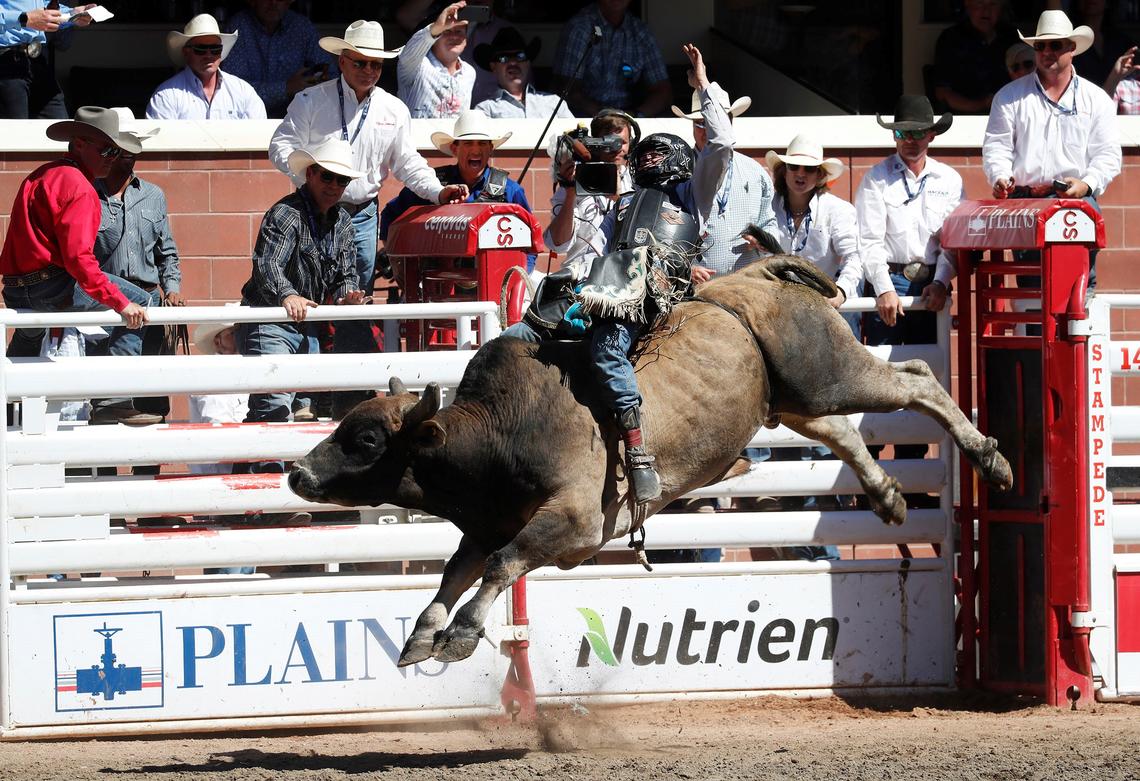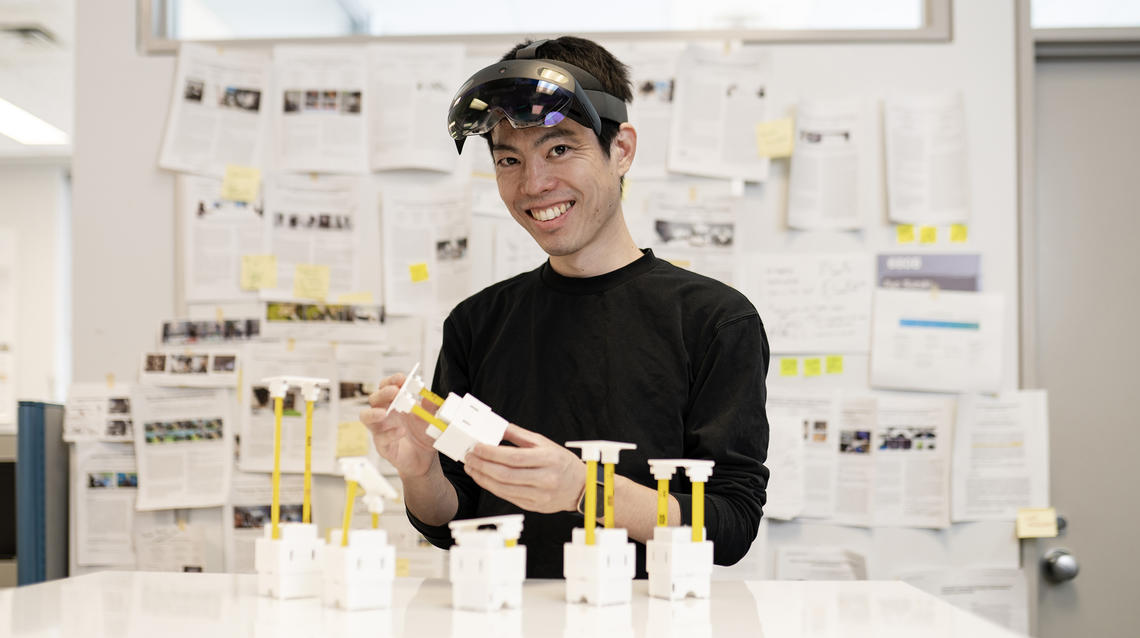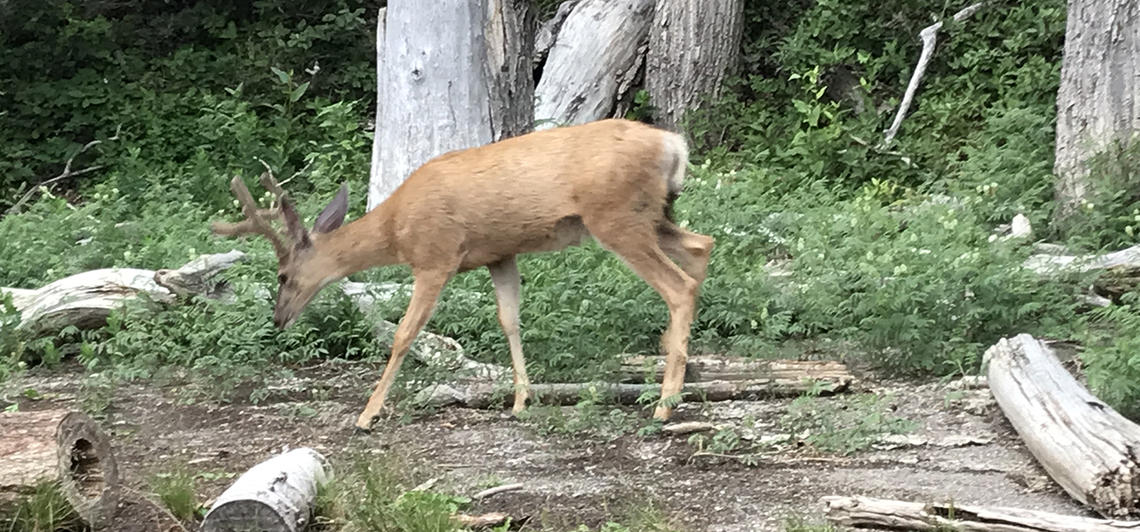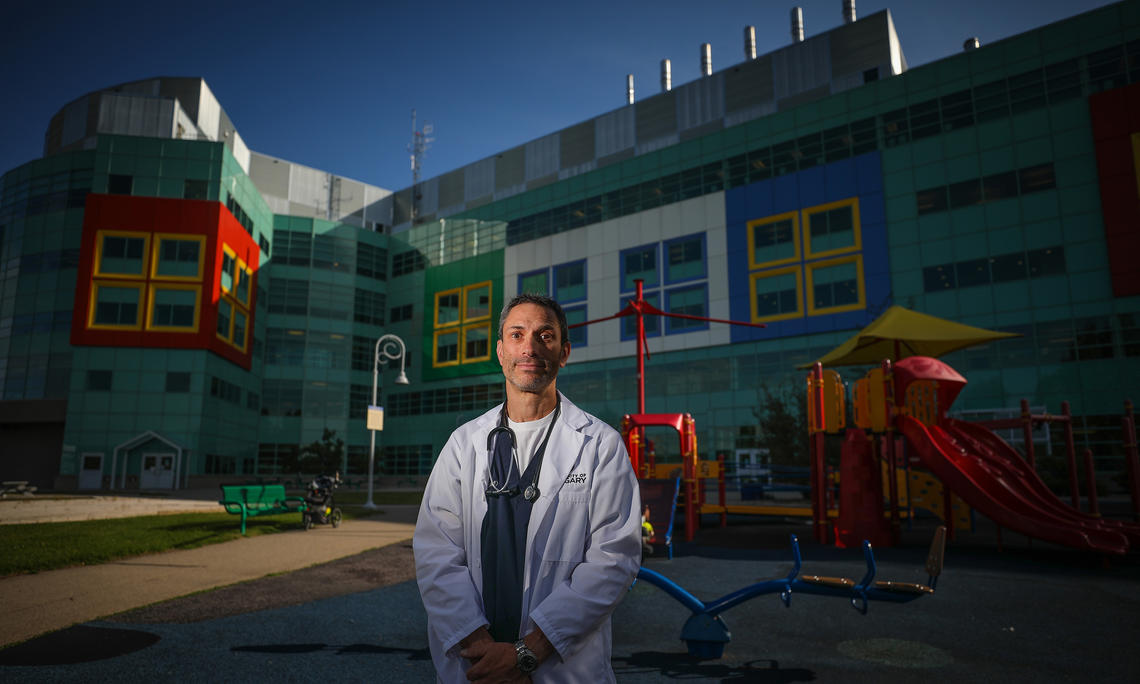Jan. 3, 2023
Most-read UCalgary research stories of 2022

Years of hard work paid off in 2022 as the University of Calgary achieved its goal of being named one of Canada’s top five research universities. So it should come as no surprise that this milestone was also the most-read story of the year among a wealth of extensive coverage in UToday. It was a diverse year in research for UCalgary as the world started to slowly return to normal after a pandemic that sparked its own share of transformative research here.
From new discoveries about teenage mood swings and chronic wasting disease, to how shape-shifting robots may change the face of space exploration and insight into what rodeo animals really think about rodeos, here are 10 of the most-read UCalgary research stories of 2022, as indicated by Google Analytics.
UCalgary named a top 5 research university for the first time
The year 2022 started out on a high note as Re$earch Infosource Inc. placed UCalgary fifth among Canada’s top research universities in its Top 50 Research Universities ranking. UCalgary became the youngest university to have reached the top five. Praised by President and Vice-Chancellor Ed McCauley as the culmination of UCalgary’s Eyes High vision and a true collective effort, the ranking was based on the university generating $457 million in sponsored research income in 2019-20, a number that actually rose by more than 10 per cent in 2021. Read more
UCalgary research collaboration reveals new urbanization and landscape modifications at ancient Maya city
UCalgary researchers, using the latest surveying technology, helped uncover more secrets of the enormous ancient Maya city of Calakmul in Mexico. This includes the substantial landscape modifications, urbanization and intensive agricultural system needed to sustain such a city, which was one of the largest in the Americas back at the start of the eighth century AD. Read more
How do bucking bulls really feel about rodeos?
As rodeo champions took to the chutes during 2022’s Calgary Stampede, researchers from UCalgary were on hand to examine the behaviour of bulls in the arena, to get a better understanding of bull-riding — from the animal’s perspective — in hopes of improving animal welfare at the Greatest Outdoor Show on Earth. Read more
UCalgary researchers look to nature to beat the 'coffee-ring effect'
The omnipresent coffee ring left behind by a cup of freshly consumed java can be stubborn to clean. It turns out this isn’t a problem unique to coffee drinkers because it is a problem similar to one that plagues the worlds of printing, genotyping and diagnostics. Turns out the solution might not only help researchers find ways to create microscopically uniform coating when building sensors, soft electronics and displays — it could even impact future cancer treatments. Read more
New shapeshifting robot design offers solutions for long-distance space missions
Researchers at UCalgary have partnered with the Massachusetts Institute of Technology in working to develop “self-reconfigurable” robots. Once the stuff of science fiction, the hope is that the proposal to develop ElectroVoxels — three-dimensional robot cubes that attach to one another, pivot and realign — may one day be a game-changer for deep-space exploration. Read more
UCalgary researchers discover molecule in the nervous system that may hold key to treating chronic pain
It’s the ultimate in recycling: a study by UCalgary researchers postulated a new way that existing anti-cancer drugs can be used to treat chronic pain rather than relying on opioid-based pain medication. This is due to the discovery of a molecule that enhances one’s sensitivity to pain. The molecule is impacted by anti-cancer drugs that can now be repurposed to block pain. Read more
Chronic wasting disease may transmit to humans, research finds
UCalgary veterinary medicine researchers have published the first study that demonstrates the risk of humans contracting chronic wasting disease, a highly infectious neurological disease currently spreading through elk, moose, mules and white-tailed deer in North America. The study shows the risk to humans from the disease is higher than first thought. Read more
Study finds hydroxychloroquine delays disability for least treatable form of multiple sclerosis
Researchers at the Cumming School of Medicine have discovered an anti-malaria medication commonly used to treat forms of arthritis and lupus can also slow the onset of disability in patients with primary progressive multiple sclerosis. This least-treatable form of the autoimmune disease impacts about 15 per cent of Canadians with MS. Read more
Your teen's moody attitude could be more than just a phase
A federal grant is supporting Department of Psychology research into the impact of prolonged stress on teen behaviour and the long-term health concerns that can come from children facing prolonged, chronic or intensely stressful situations, which can lead to them exhibiting more extreme behavioural changes in their personalities. The research will examine the neurological effects on chronic stress on young brains. Read more
International study identifies predictors of severe outcomes in children with COVID-19
The COVID-19 pandemic has sparked countless scientific studies worldwide. UCalgary is co-leading an international study following more than 10,000 children in 10 countries to explore the impact of COVID infection on children and find insights into the risk of severe outcomes on young people around the world. Read more
Honourable Mention: The following story was published in December 2021, but continued to be one of UToday’s most-read research stories in 2022.
Alberta’s largest research universities team up to track evidence of COVID-19 in wastewater of 3.2M people across Alberta
UCalgary is at the forefront of a provincial monitoring network examining wastewater for indications of COVID-19 spread in Alberta. The wastewater of 25 cities, towns and municipalities is being monitored for traces of the virus that causes COVID, and the results are being shared on the COVID Data Tracker website. Read more
Check out the UCalgary Research category page for more great research stories. And find the list of most-read articles in 2021.

















